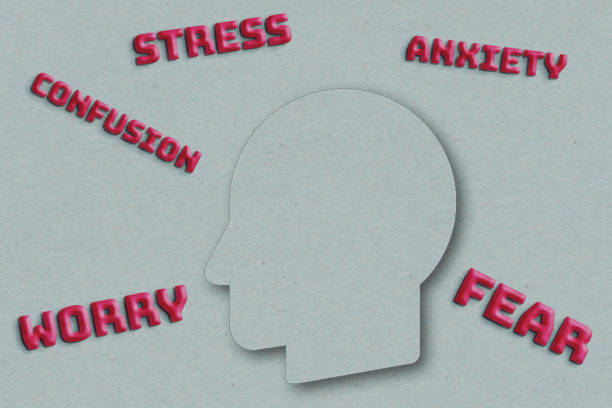Introduction
Negative thoughts are an inherent part of human
psychology. However, when they become persistent and overwhelming, they can
have detrimental effects on mental health. Suppressing negative thoughts does
not mean ignoring or denying them, but rather learning to manage and control
them effectively. This article will explore the importance of suppressing
negative thoughts to improve mental health and provide practical strategies to
help individuals cope with such thoughts.
The Effect of Negative Considerations on Mental Health
1.
Increased
Stress and Anxiety
Persistent negative thoughts
can lead to chronic stress and anxiety. Rumination over past mistakes or
constant worrying about the future can trigger the body's stress response,
leading to a range of physical and psychological health issues.
2.
Depression
Negative thinking patterns are
closely associated with depression. When individuals focus on their perceived
shortcomings and failures, it can spiral into a deep sense of hopelessness and
despair.
3.
Lower
Self-Esteem
Continuous negative self-talk
can erode self-esteem. Believing that you are not good enough or deserving of
happiness can hinder personal growth and overall well-being.
Strategies to Suppress Negative Thoughts
1. Care contemplation includes noticing your considerations
without judgment. This practice can help individuals distance themselves from
negative thoughts, making it easier to let go of them. Over time, mindfulness
can lead to a more balanced perspective on life's challenges.
2. Cognitive
Behavioral Therapy (CBT)
Cognitive Behavioral Therapy
(CBT) is a widely used and highly effective form of psychotherapy that focuses
on helping individuals identify and change unhelpful thought patterns and
behaviors. It is based on the premise that our thoughts, feelings, and behaviors
are interconnected, and by altering negative thought patterns and maladaptive
behaviors, individuals can improve their emotional well-being and overall
quality of life. Here are a few vital standards and methods related with CBT:-
a. Identification of Negative Thought
Patterns: In CBT, individuals learn to recognize and challenge automatic
negative thoughts. These thoughts often contribute to emotional distress,
anxiety, depression, and other mental health issues.
b. Cognitive Restructuring: Once negative
thought patterns are identified, CBT helps individuals reframe these thoughts
in a more balanced and realistic way. This process involves questioning the
validity of these thoughts and replacing them with more rational and positive
ones.
c. Behavioral Techniques: CBT incorporates
behavioral techniques to address problematic behaviors. This may involve
setting specific goals and using strategies to modify behavior, gradually
facing feared or avoided situations (exposure therapy), and using reinforcement
and rewards to encourage desired behaviors.
d. Homework Assignments: Many CBT
therapies involve homework assignments where individuals practice the skills
and strategies they've learned in therapy. This helps reinforce learning and
provides opportunities for real-world application.
e. Self-monitoring: Individuals are often
encouraged to keep a record of their thoughts, emotions, and behaviors to
identify patterns and triggers for their psychological distress.
f. Mindfulness and Relaxation Techniques:
Some CBT approaches incorporate mindfulness and relaxation exercises to help
individuals manage stress and anxiety.
g. Collaborative Approach: CBT is
typically a collaborative effort between the therapist and the individual.
Therapists work with clients to set goals, develop strategies, and monitor
progress.
CBT has been successfully used
to treat a wide range of mental health conditions, including anxiety disorders,
depression, phobias, post-traumatic stress disorder (PTSD),
obsessive-compulsive disorder (OCD), and more. It's also used in non-clinical
settings to help people cope with stress, improve problem-solving skills, and
enhance overall well-being.
CBT is considered evidence-based and is one of the most researched and validated forms of psychotherapy. Its structured and goal-oriented nature makes it a popular choice for many individuals seeking help with mental health issues. It's often delivered in individual or group therapy sessions, and there are various specific CBT approaches, such as dialectical behavior therapy (DBT) and acceptance and commitment therapy (ACT), which incorporate CBT principles while focusing on particular aspects of treatment.
3. Journaling
Keeping a journal can be a therapeutic
way to process and manage negative thoughts. Writing down your worries and
concerns can help you gain insight into the underlying causes of these thoughts
and develop strategies to address them.
4.
Healthy
Lifestyle Choices
A well-balanced diet, regular
exercise, and sufficient sleep can contribute to better mental health. These
lifestyle factors can help regulate mood and provide a stronger foundation for
managing negative thoughts.
5.
Seek
Support
Sharing your thoughts and
feelings with friends, family, or a mental health professional can provide
valuable support. Talking to someone you trust or a therapist can help you gain
perspective and work through negative thoughts more effectively.
Conclusion
Suppressing negative thoughts
is not about denying reality or pretending everything is perfect. It's about
recognizing the harmful impact of persistent negative thinking on mental health
and taking proactive steps to manage and overcome them. By practicing
mindfulness, seeking therapy, journaling, and maintaining a healthy lifestyle,
individuals can improve their mental well-being and lead happier, more
fulfilling lives. Remember that it's okay to seek help when needed, and by
doing so, you can take significant steps towards a more positive and mentally
healthy future.













0 Comments